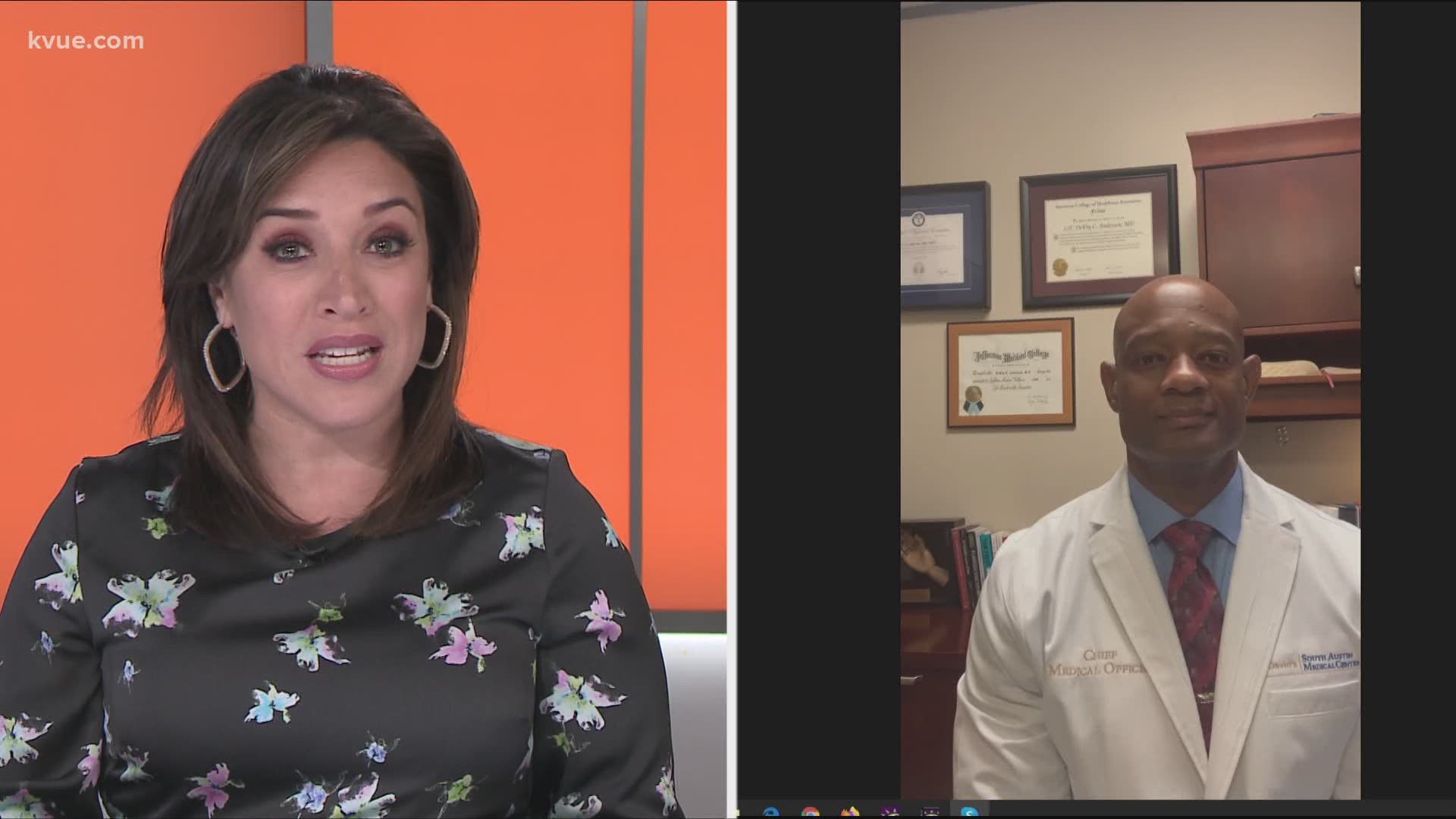AUSTIN, Texas — Editor's note: The video published above is a related video where Dr. Devry Anderson, Chief Medical Officer from St. David's South Austin Medical Center, joined KVUE to talk about the spike in coronavirus cases.
What happens if I become infected with COVID-19? How soon am I contagious? How long am I contagious? Does it matter if I show symptoms or if I don't?
These are among the common questions people may have regarding the health of not only themselves but others such as loved ones or community members.
An online article from the Harvard Medical School said the time from exposure to symptom onset (known as the incubation period) is thought to be three to 14 days, though symptoms typically appear within four or five days after exposure. A person with COVID-19 may be contagious 48 to 72 hours before starting to experience symptoms, according to the Harvard article.
Additionally, the study said, "emerging research suggests that people may actually be most likely to spread the virus to others during the 48 hours before they start to experience symptoms."
However, the Center for Disease Control and Prevention (CDC) reports that the period of infectiousness for COVID-19 is not yet known. According to the CDC, despite reports of asymptomatic infections (detection of virus with no development of symptoms) and pre-symptomatic infections (detection of virus prior to the development of symptoms) of COVID-19, the role in transmission for those infection types are not yet known.
Still, the CDC has posted the following guidance regarding returning to the public after testing positive for COVID-19 or showing symptoms:
For those who think or know they had COVID-19 and had symptoms
The CDC recommends that you stay isolated until all of the following conditions have been met:
- You have had no fever for at least 72 hours (that is three full days of no fever without the use of medicine that reduces fevers)
- Other symptoms have improved (i.e. cough or shortness of breath)
- At least 10 days have passed since your symptoms first appeared
Another recommendation from the CDC stated that depending on your healthcare provider’s advice and availability of testing, you might get tested to see if you still have COVID-19. According to the CDC, if you will be tested, you can be around others when you have no fever, respiratory symptoms have improved and you receive two negative test results in a row at least 24 hours apart.
For those who tested positive for COVID-19, but were asymptomatic
The CDC recommends you can be with others after 10 days have passed since your test. If you start to develop symptoms after testing positive, the CDC said to follow the guidance above for “I think or know I had COVID, and I had symptoms.”
For those who have been around a person who has tested positive for COVID-19
The CDC recommends anyone who has been in close contact with someone knowingly to have contracted COVID-19 should "stay home for 14 days after the exposure based on the time it takes to develop illness."
PEOPLE ARE ALSO READING:

